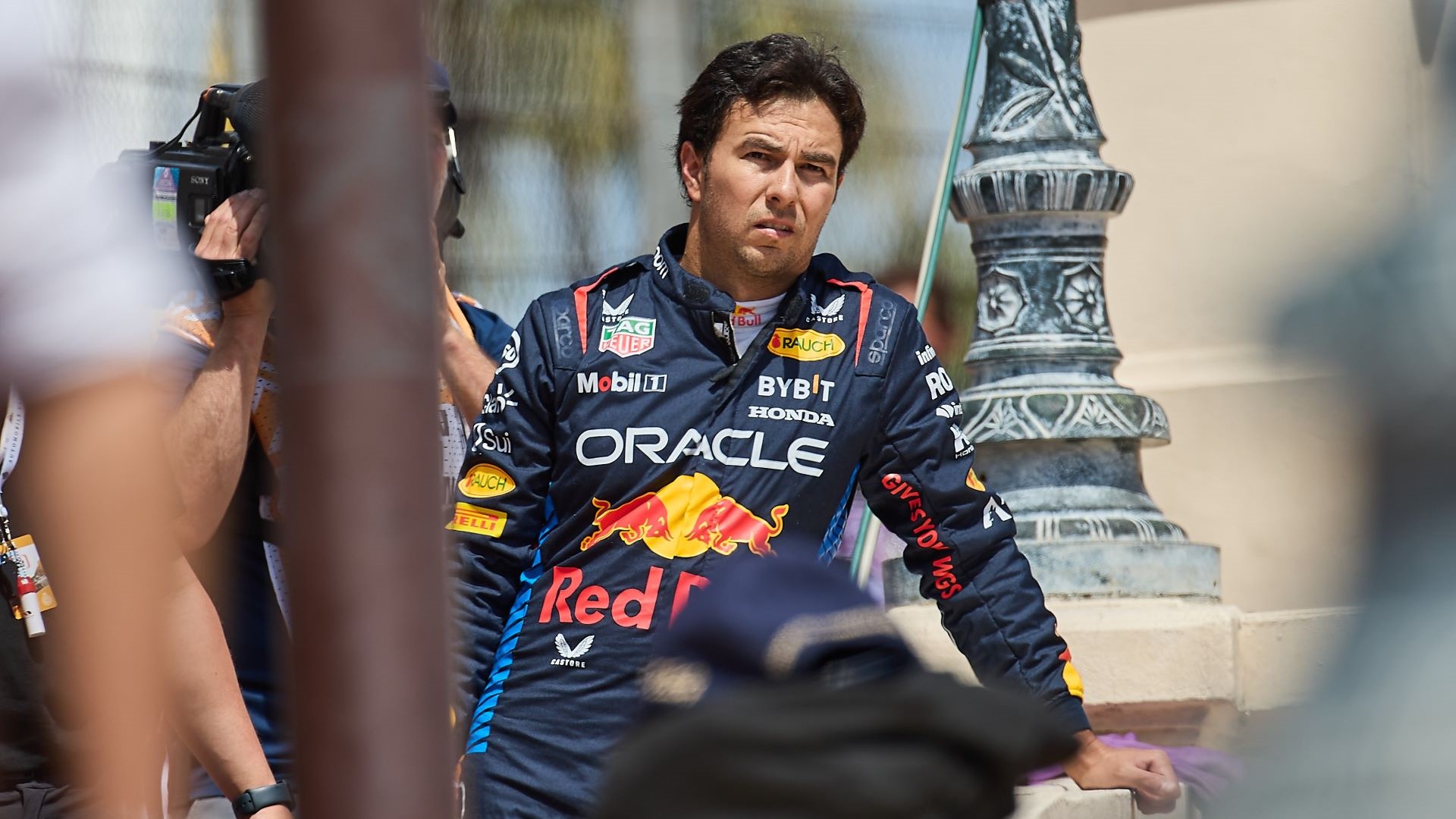Thanks to Formula 1's lack of tampering regulations, every part of the season is silly season. It's another level of tension underlying the entire season that teams actively try to undermine, thanks to the newly broad organizational practice of releasing announcements teasing announcements. Red Bull Racing got pushy on Tuesday morning, telling fans, "Set. Your. Alarms." That message, combined with the classic siren/eyeball emoji, could've been hyping anything from a special livery announcement to a free-agency signing. The graphic handily adjusted for timezone—12:00 p.m. EDT, for the east coasters—and so everyone knew to wait four hours for an unsatisfying pay-off: Red Bull Racing had re-signed its second driver, Sergio Pérez.
There's nothing to be said about Pérez today that couldn't have also been said a year ago. He's had a Cinderella story insofar as there can be a Cinderella story in F1: a pay driver turned serviceable midfield driver with enough flashes of brilliance to earn him a seat on a top team, where he would be routinely outperformed by his generational teammate to such a degree that he no longer seemed worthy of that second seat at all. Valtteri Bottas—free from Mercedes, mustached, and probably enjoying himself on gravel bike track somewhere—is grimacing in sympathy.
The past two seasons, Pérez's odd Q2 exits haven't mattered. Strap Max Verstappen to a rocket and he can win you the Constructors' Championship by himself. But in the early half of 2024, Red Bull's domination has looked more tenuous, both on track and off. So far this season, Verstappen has lost three (three!) races, the same amount he lost all of last year, and unlike last year, none of them were to his teammate, though it is worth noting that Pérez has managed the coveted 1-2 victory in three of Verstappen's wins. That's without looking at the public-facing power dispute between team principal Christian Horner and special advisor Helmut Marko, multiple rumors that Verstappen was contemplating leaving for Mercedes, and allegations of abuse against Horner which have fallen out of the news cycle as the season churns on.
In light of Red Bull's leadership threatening to eat itself from the inside out, Pérez's re-signing is ... safe. His agent deserves some credit for managing a multi-year contract rather than the string of one-year deals that dogged Bottas, but unlike Mercedes, Red Bull suffered through years of playing second-seat roulette. With a regulations overhaul in the near future, there are no more gambles; Red Bull is going for consistent and good enough, which is the best they've had since their developmental pipeline provided them with two drivers who've been better off somewhere else—Alexander Albon and Pierre Gasly, for those keeping track at home. People will continue arguing about what constitutes "good enough" for a second driver, which will usually always be above what a second driver is achieving, but that is a second driver's lot in life. Compared to the Oscar Piastri–Alpine debacle of 2022, this is a milquetoast signing, but that is also a second driver's lot in life.
Speaking of Alpine: After its 2022 mishap, losing both Fernando Alonso and Piastri in one fell swoop, Alpine filled its second driver seat with a recently free-from-Red-Bull Gasly, who famously did not get along with his teammate Esteban Ocon in the junior racing circuit. In the first lap of the most recent race at Monaco, Ocon ignored team orders telling him not to attempt a pass on Gasly, and wound up flinging himself into the air using Gasly's front-right wheel. Teammate collisions are problematic; teammate collisions as a direct result of ignoring team orders means that you've let everyone in the factory and on the pit wall down. Ocon lost the French civil war—Alpine announced a few days ago that Ocon would be leaving the team at the end of the season.
It would be wrong to ascribe all of Alpine's current issues back to their initial decision to prioritize keeping a known quantity in Ocon over promoting a promising junior in Piastri when the loss of Alonso was ultimately kicked off by a surprise Sebastian Vettel retirement. Alpine's primary issue right now is with their car, which is currently performing worse than a Haas. If Alpine were fielding an Alonso-Piastri pairing, people would be mourning having to watch a former World Champion and a promising prospect languish away in one of the worst cars on the grid—it's much better for spectators to watch the two get podiums elsewhere. Esteban Ocon is just an easier problem to fix than poor car development. Alpine will have its choice on who will fill his spot—if the team is so scarred from losing Piastri, they might even promote their other Australian junior driver, Jack Doohan.
If you're Yuki Tsunoda or Liam Lawson at Red Bull, you'd be looking to pull a Gasly and escape. If you're Michael Andretti, who watched as teams stonewalled your attempted entry into the circuit, you'd be gesticulating wildly with both hands at the junior drivers trapped in F1's bottleneck of talent. But the biggest consequence of the second driver conundrum comes for Carlos Sainz Jr., whose primary fault for being out of a seat next year is that he's not quite as good as Charles Leclerc and Lewis Hamilton. He left the Red Bull ecosystem once, and Red Bull has now picked Pérez over him; if the Pérez contract ever winds up biting Red Bull, Sainz will be the first one laughing.






